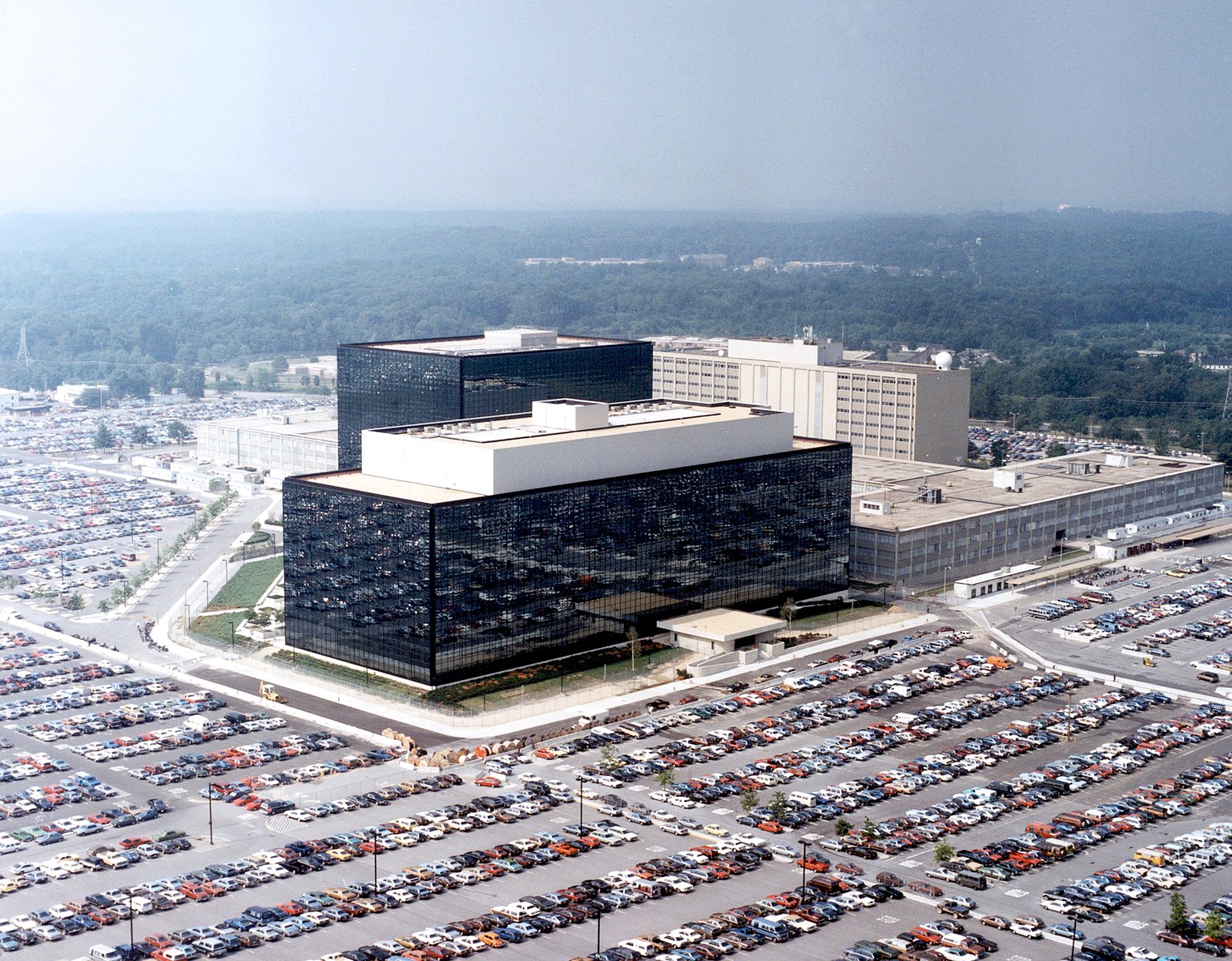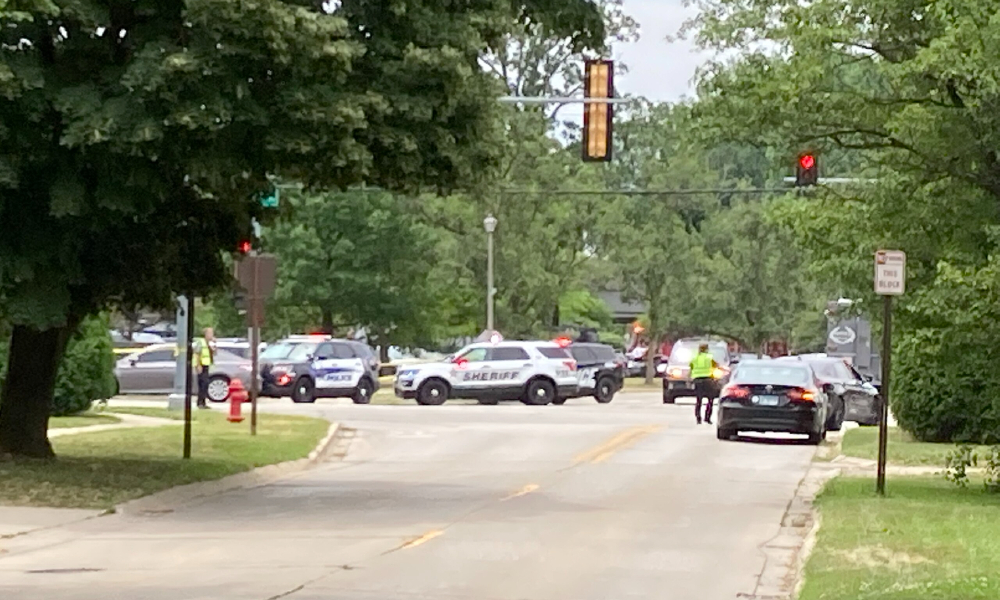Metadata Collection Violated FISA, Ninth Circuit Rules
An overview of the decision by the U.S. Court of Appeals for the Ninth Circuit in United States v. Moalin.

Published by The Lawfare Institute
in Cooperation With

On Sept. 2, the U.S. Court of Appeals for the Ninth Circuit decided United States v. Moalin, concerning four U.S. residents convicted of conspiring to provide material support to a foreign terrorist organization and conspiring to launder money from 2007 to 2008. On appeal, the defendants argued that evidence used against them at trial was derived from an allegedly unlawful electronic surveillance program run by the National Security Agency (NSA) at the time of the investigation and should have been suppressed. The program involved the bulk collection of phone records, including those of one of the defendants.
The defendants were convicted in 2013. Shortly afterward, former NSA contractor Edward Snowden publicly disclosed the existence of NSA data collection programs, including the bulk phone records program. That public disclosure ultimately informed the defendants that information used to support a Foreign Intelligence Surveillance Act (FISA) wiretap order for one of the defendants’ phones may have been collected illegally. While finding that the now-discontinued bulk phone records program violated FISA and acknowledging that it also was likely unconstitutional, the Ninth Circuit affirmed the defendants’ convictions after determining that evidence used against the defendants at trial had not been tainted by information the NSA had collected through the program.
Factual Background
Four U.S. residents and members of the Somali diaspora appealed their convictions for sending, or conspiring to send, $10,900 to Somalia to support al-Shabaab, a designated foreign terrorist organization. Since 2006, Somalia has been roiled by violent insurgency, led in large part by al-Shabaab. The insurgency has caused many Somalis to flee abroad, and remittances from the global Somali diaspora are a critical financial source for the country. Somalia has no formal banking system, so diaspora members commonly rely on informal money transfer businesses called “hawalas” to send money home.
The defendants, Basaaly Saeed Moalin, Mohamed Mohamed Mohamud (“M. Mohamud”), Issa Doreh, and Ahmed Nasir Taalil Mohamud (“Nasir Mohamud”) all immigrated to the United States from Somalia; Moalin and Doreh are U.S. citizens, M. Mohamud has refugee status and Nasir Mohamud has a visa. The defendants were charged with conspiracy to provide material support to terrorists, in violation of 18 U.S.C. § 2339A(a); conspiracy to provide material support to a foreign terrorist organization, in violation of 18 U.S.C. § 2339B(a)(1); and conspiracy to launder monetary instruments, in violation of 18 U.S.C. § 1956(a)(2)(A) and (h). Moalin, M. Mohamud and Doreh were also charged with a further count of providing material support to a foreign terrorist organization, in violation of 18 U.S.C. § 2339B(a)(1) and (2), and Moalin was charged with a further count of conspiracy to provide material support to terrorists in violation of 18 U.S.C. § 2339A(a) for allegedly providing a house in Somalia to members of al-Shabaab.
Prior to trial, the government provided notice that it intended to use or disclose in the proceedings “information obtained or derived from electronic surveillance conducted pursuant to the authority of the Foreign Intelligence Surveillance Act (FISA).” At trial, the government’s principal evidence against defendants consisted of recorded calls between Moalin, his co-defendants and individuals in Somalia. The government wiretapped Moalin’s phone after receiving a FISA court order under 50 U.S.C. §§ 1801–1812. Several calls involved a man known as “Shikhalow” or “Majadhub,” whom the government contends was Aden Hashi Ayrow, an important al-Shabaab figure killed in a U.S. missile strike on May 1, 2008.
Additionally, the government introduced records of money transfers completed by Shidaal Express, the hawala where Doreh worked. Moalin made these transfers with Shikhalow as the recipient under multiple aliases. Recorded calls between Moalin and Shikhalow and among the defendants demonstrated that the money was intended to support al-Shabaab fighters. A week after Ayrow’s death, Moalin told an acquaintance that he wanted to continue providing assistance even though “the man that we used to deal with is gone.” In July 2008, a senior operational figure in al-Shabaab gave Moalin contact information for Omar Mataan, to whom Moalin also transferred money through Shidaal Express.
The defendants did not dispute that they sent money to Somalia through Shidaal Express but maintained that Shikhalow was a local police commissioner and that their money supported regional administrations governing in the absence of an effective central government. Moalin also presented evidence that he supported humanitarian causes in Somalia during the time period of the indictment. In February 2013, the jury convicted the four defendants on all counts.
Procedural Posture
Prior to trial, Moalin sought to suppress “all interceptions made and electronic surveillance conducted pursuant to [FISA], 50 U.S.C. § 1801, et seq., and any fruits thereof, and/or for disclosure of the underlying applications for FISA warrants.” Moalin argued that the government may have violated the Fourth Amendment or FISA in collecting information it used to support its FISA wiretap applications. The district court denied Moalin’s suppression motion and did not grant defense counsel access to the documents supporting the FISA orders.
In June 2013, Snowden publicly disclosed the existence of NSA data collection programs, including one program conducted under FISA Subchapter IV that collected bulk phone records, known as telephony metadata.
Following the disclosures, public officials defending the telephony metadata collection program stated publicly that the program had played a role in the government’s investigation of Moalin. The FBI had previously closed an investigation of Moalin without bringing charges but then reopened that investigation based on information obtained from the metadata program.
On Sept. 30, 2013, the defendants filed a motion for a new trial, arguing that the government’s collection and use of Moalin’s telephony metadata violated the Fourth Amendment, and that the government had failed to provide notice of the metadata collection or of any surveillance of Moalin it had conducted under FISA. The district court denied the motion, concluding that the public disclosure did not change the court’s FISA rulings and that the telephony metadata program did not violate the Fourth Amendment. The defendants appealed.
The Ninth Circuit’s Decision
At the outset, the Ninth Circuit determined that the defendants had standing to challenge the government’s collection of Moalin’s phone records through the NSA’s telephony metadata program. However, the court declined to decide whether the program constituted an unreasonable search in violation of the Fourth Amendment. Rather, the court held that the metadata collection, regardless of any Fourth Amendment violation, had not tainted the evidence used by the government at trial. As a result, suppression of that evidence was not warranted. In declining to suppress the challenged evidence, the Ninth Circuit left open the possibility that the government had an obligation to notify the defendants under the Fourth Amendment that it had collected Moalin’s phone records through the metadata program. However, because the defendants had learned about the wiretap surveillance in time to challenge it on appeal, the Ninth Circuit held that the government’s failure to notify had not prejudiced the defendants.
The Metadata Program, FISA and the Fourth Amendment
Under FISA’s business records authority, the government is authorized to collect telephony metadata by requiring telecommunications providers to turn over call detail records for communications between the United States and foreign countries and communications wholly within the United States on a continual and daily basis. The information collected includes the phone numbers involved in a call, the time of the call and its duration. It does not include the voice content of a call.
The government is further authorized to maintain a database of the telephony metadata it collects and to search that database when NSA officials had “reasonable articulable suspicion” to connect a specific query (often a particular phone number) with a foreign terrorist organization. NSA officials could search phone numbers up to three degrees removed from the original search term. Following Snowden’s disclosures, Congress passed the USA Freedom Act, which largely ended the NSA’s bulk telephony metadata collection program and established new reporting requirements for the government’s collection of call detail records.
The defendants argued that the discontinued metadata program violated the Fourth Amendment and FISA and, therefore, that all evidence derived from its collection of Moalin’s phone records should be suppressed. Under the Fourth Amendment, persons are protected against unreasonable searches if they have demonstrated a subjective expectation of privacy in the things or places to be searched and that expectation is one that society is prepared to accept as “reasonable.” Moalin asserts he had a reasonable expectation of privacy in his telephony metadata.
The government argued, and the district court found, that the third-party doctrine of Smith v. Maryland controls. Smith held that the government’s use of a pen register to record the numbers the defendant dialed from his phone did not constitute a Fourth Amendment search because individuals have no reasonable expectation of privacy in information they voluntarily convey to the telephone company. The government contended that collection of telephony metadata––information voluntarily conveyed to telecommunications providers––is analogous.
The Ninth Circuit, however, found this argument unconvincing. The appeals court explained that technological advances since Smith was decided in 1979 enable the government to collect and analyze vast amounts of personal data. In light of such advances, the Supreme Court in Carpenter v. United States declined to apply the third-party doctrine to the government’s collection of historical cell phone records, including cell phone location information, from wireless carriers. The Ninth Circuit found the comprehensiveness and quantity of information ascertained from telephony metadata more comparable to that in Carpenter than to the more “limited” and less revealing information in Smith.
The court also found that the duration of the surveillance also warranted a departure from Smith, where the pen register was used only for a few days. Here, the NSA collected Moalin’s telephony metadata on an ongoing daily basis for years––nearly round the clock surveillance. The NSA’s collection of and ability to aggregate and analyze millions of other Americans’ telephony metadata is also problematic, the court wrote, insofar as it made the collection of Moalin’s metadata “considerably more revealing” because the NSA was authorized to search phone numbers up to three degrees removed from Moalin’s.
While the Ninth Circuit viewed the defendants’ Fourth Amendment arguments favorably, it ultimately did not decide whether the discontinued metadata program violated the Fourth Amendment. Instead, the court concluded that suppression of derived evidence would not be warranted even if a violation occurred. After reviewing the classified FISA applications and other related information, the court determined that the metadata collection, regardless of its constitutionality, did not taint the evidence used by the government at trial. The Ninth Circuit noted that to the extent that government officials in their public statements created a contrary impression––that the possibly illegal metadata collection was key in obtaining the wiretap on Moalin’s phone––such an impression was not consistent with the classified record in this case.
The defendants also argued that the metadata collection program violated FISA Subchapter IV. The government countered that the defendants lacked standing to challenge the collection program. United States v. Plunk established that defendants lack standing to challenge government subpoenas served on third parties––here, telecommunications providers––because they are not directed at the defendant. However, the Ninth Circuit noted, Carpenter has since clarified that criminal defendants are not categorically prohibited from challenging third-party subpoenas.
Regarding the merits of the defendants’ statutory challenge, § 1861 of FISA Subchapter IV authorizes the government to apply to the Foreign Intelligence Surveillance Court (FISC) for an “order requiring the production of any tangible things (including ... records ...) for an investigation to obtain foreign intelligence information not concerning a United States person or to protect against international terrorism or clandestine intelligence activities.” At the time, § 1861(b)(2)(A) required the government to include in FISA applications “a statement of facts showing that there are reasonable grounds to believe that the tangible things sought are relevant to an authorized investigation (other than a threat assessment).” The defendants argued that the metadata program failed the relevance requirement because the NSA collected phone records in bulk, regardless of whether individual records were relevant to authorized investigations. The government maintained that all metadata collected was relevant because successfully analyzing it for specific communications requires bulk collection. The Ninth Circuit highlighted that the U.S. Court of Appeals for the Second Circuit had previously found this argument unpersuasive in ACLU v. Clapper, in which the court maintained that such an interpretation of the relevance requirement essentially nullified the nexus to an “authorized investigation.”
The Ninth Circuit was also unpersuaded by the fact that the call detail records at issue in this case were relevant to a counterterrorism investigation. The court stated that such a relevance determination could be made only after the government had engaged in bulk metadata collection, whereas FISA requires a showing of relevance to a specific authorized investigation before records may be collected. Thus, the Ninth Circuit held that the telephony metadata collection program exceeded the authorized scope of § 1861 and violated FISA.
Suppression and Notice
While the court recognized this FISA violation, it would only suppress the alleged “fruits” of the unlawful metadata collection if suppression was a remedy clearly provided for in the relevant statute––here, FISA. Nowhere in § 1861 or anywhere else in Subchapter IV is the suppression of evidence mentioned as a remedy, whereas all the other FISA subchapters authorizing intelligence collection do have a suppression remedy. In light of that fact, the court concluded that Congress had not contemplated the suppression remedy for § 1861 and, therefore, there is no statutory basis to suppress Moalin’s metadata.
The defendants argued that the suppression remedy in § 1806(e) of Subchapter I should be applied instead, as that remedy provides for suppression if evidence is unlawfully obtained or derived from electronic surveillance. Moreover, § 1806(g) mandates suppression if the electronic surveillance “was not lawfully authorized.” However, the Ninth Circuit reviewed the government’s classified FISA applications and related information and concluded that they did not rely on the unlawful metadata collection to show probable cause. Accordingly, the court held that the FISA wiretap evidence was not fruit of the poisonous tree and should not be suppressed.
The defendants further argued that regardless of the constitutionality of the metadata collection, the Fourth Amendment also required the government to provide notice to the defendants of its collection and use of Moalin’s telephony metadata. They also contended that they were entitled to notice of any additional, non-FISA Subchapter I surveillance the government conducted on them during the investigation.
While the government notified the defendants prior to trial that it intended to use or disclose information obtained or derived from electronic surveillance conducted pursuant to FISA, the government did not provide similar notice that it had collected Moalin’s phone records as part of the metadata collection program. The defendants learned about that only after trial from public statements that government officials made following the Snowden disclosures. The government also did not provide notice of any additional surveillance of the defendants that may have furnished information supporting the FISA wiretap applications or evidence used at trial.
In 2008, Congress passed the FISA Amendments Act (FAA), which authorized the government to conduct electronic surveillance of people it believes are outside the United States without using the procedures required by FISA Subchapter I. However, if the government wants to use evidence “obtained or derived from” FAA surveillance in a criminal prosecution, it must notify the defendants as required by FISA Subchapter I. The Snowden disclosures revealed that the government had used evidence derived from FAA surveillance in criminal prosecutions without providing defendants with notice.
Additionally, as the court noted, the government conducts other foreign intelligence surveillance outside the United States, beyond the scope of FISA or the FAA, under Executive Order 12333, which does not have a notice requirement. With the passage of the FAA, Executive Order 12333 no longer authorizes surveillance targeting U.S. persons, but such persons’ communications and metadata may be collected incidentally.
The Fourth Amendment does have a notice requirement. However, the Supreme Court in Dalia v. United States has for wiretap surveillance authorized notice to be provided after the operation is complete as a substitute for advance notice because advance notice would defeat the very purpose of a wiretap. The court explained further that criminal defendants, who are unaware that a potentially unconstitutional search may be used against them, are unable to vindicate violations of their Fourth Amendment rights through the suppression remedy. In the foreign intelligence context, the Fourth Amendment still demands notifying “a criminal defendant when the prosecution intends to enter into evidence or otherwise use or disclose information obtained or derived from surveillance of that defendant conducted pursuant to the government’s foreign intelligence authorities,” including FISA, the FAA, and Executive Order 12333. However, the Ninth Circuit did not decide whether the government should have provided notice to the defendants in this case.
The Ninth Circuit went on to hold that, even if the government should have provided notice of the metadata collection to the defendants, the government’s failure to notify did not prejudice the defendants since they ultimately learned about the wiretap surveillance in time to challenge it in a motion for a new trial and on appeal. Suppression of Moalin’s phone records and other evidence derived from the metadata collection is therefore not warranted. Moreover, the court’s review of the classified record led it to conclude that information regarding potential other forms of surveillance would not have provided the defendants with the basis for a successful Fourth Amendment claim. Thus, the court similarly declined to decide if additional notice for non-metadata surveillance was required.
Other Issues
Separately, the defendants asserted that the government violated their rights under Brady v. Maryland by failing to produce exculpatory evidence. In relation to the information sought by the defendants, the government submitted five requests for a protective order under the Classified Information Procedures Act (CIPA), codified at 18 U.S.C. App. 3 § 4, which allows the court to authorize the government to withhold classified information or provide a summary substitute. The Ninth Circuit concluded that the district court had correctly assessed what information from the classified record required disclosure.
The defendants also challenged on appeal the district court’s decision to disallow witness testimony in support of Moalin’s defense that he contributed to humanitarian cases in Somalia opposed to al-Shabaab. The Ninth Circuit upheld the district court’s evidentiary ruling, finding this testimony minimally probative of Moalin’s intent from the relevant period in 2007 to 2008.
Additionally, the defendants challenged the district court’s refusal to authorize for defense witness Farah Shidane either “safe passage”––a guarantee that the government would not arrest him––to attend his deposition in Djibouti, or alternatively, a videoconference deposition while he was in Somalia. Shidane had received money transfers listed in the indictment from the defendants through Shidaal Express. However, since the government did not rely on those transfers at trial, the Ninth Circuit affirmed that both the safe passage and videoconference deposition requests were properly denied.
The Ninth Circuit found further that the district court did not abuse its discretion by allowing a government expert to briefly testify to the facts of the Black Hawk Down incident, as part of a chronology of recent Somali history that both parties agreed was generally relevant.
Finally, Doreh challenged on appeal the sufficiency of the evidence supporting the guilty verdict against him for Counts One, Two, Three, and Five (conspiracy to provide material support to terrorists, conspiracy to provide material support to a foreign terrorist organization, conspiracy to launder money, and providing or aiding and abetting the provision of material support to a foreign terrorist organization, respectively). The Ninth Circuit affirmed Doreh’s convictions.
Conclusion
Beyond affirming the defendants’ convictions, the Ninth Circuit’s decision has three important implications. First, the court held that the NSA’s former telephony metadata collection program violated FISA. Thus, not only was the collection of Moalin’s phone records unauthorized under the statute, but so was the collection of millions of Americans’ phone records that were swept up in the program. Second, while the court did not ultimately rule on the program’s constitutionality, the Ninth Circuit signaled that, for the duration of the program, millions of Americans’ phone records may have been collected in violation of their Fourth Amendment rights. Finally, the court’s discussion of the government’s notice obligations under the Fourth Amendment has potentially expanded the scope of when the government is required to provide notice to criminal defendants, at least in the Ninth Circuit. Orin Kerr explains in greater detail here exactly how the Ninth Circuit may have created a new notice obligation in relation to government surveillance practices.





